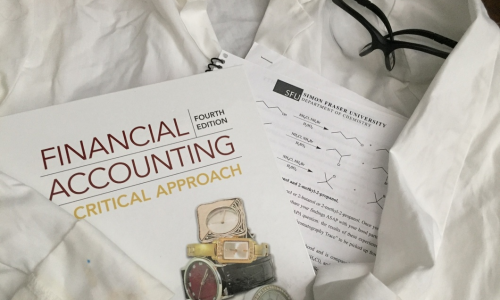
I do not have a 4.0 GPA. I’m not the President of BASS or the SFSS, nor have I held any executive positions in any clubs within SFU. I do, however, have 4 semesters of Co-op work experience behind me, and by leveraging these experiences and the connections I made, I have secured a job here in Vancouver well ahead of my graduation this coming June. My Co-ops have given me meaningful skills to bring to future opportunities, granted me access to higher-paying opportunities, and allowed me to develop professionally and personally. My work experience has been my competitive advantage when looking for future opportunities, and it can be yours, too, if you start early and take full advantage of the choices the Co-op program has to offer, and the support it gives in your pursuit of finding meaningful work.
Co-op placements opened me up to the world early in my university career, both here in Vancouver and abroad. By the end of my second year, I was employed with Odlum Brown, a well-known financial institution in downtown Vancouver, as an IT Helpdesk employee. I worked there for two semesters, and it was an excellent starting point for my working experience. I learned a great deal in my time there, including time management, prioritization, and a host of technical skills I used on the job. I met amazing people who were all keen to help me succeed in my position, and I have stayed in touch with a few of them even many years later. This job showed me firsthand what could be in store for me as a full-time business employee after my graduation. The added benefit of the placement was it allowed me to diligently save up for an amazing academic exchange the following spring in Europe. If I didn’t have this job, I could not have had the chance to save up for myself and go on this experience to see a part of the world that I had been fascinated with since I was a child.
My work experiences have sent me to different places, too, with two of my three jobs outside of Vancouver. My second Co-op job was in a managerial role with a sport fishing business in Tofino called WardoWest, where I developed and improved the company operations and experience for a diverse clientele. This job honed my strategic capabilities and forced me to think big, but also focus on those small details which make a difference. My roles were varied and exciting, and I dealt with a range of impressive guests, business people, and employees to make sure the operation ran smoothly.

My final Co-op role was in Guelph with the Royal Bank of Canada where I once again had the opportunity to expand my horizons and meet new and interesting people. The job showed me the scale of the largest bank in Canada, and the wide variety of people you can meet and opportunities you can pursue if you are employed with them. Both experiences taught me greater independence, self-monitoring, and how to live as an adult out on my own. If you have an opportunity to pursue an international Co-op placement, I strongly recommend that you do. The Co-op office has all the connections and know-how you need to successfully apply and accept a job outside of Canada. With our globalized world, it is more important than ever that you understand how it interacts with itself, the different dominant cultures, and the ways of doing business that you will run into in your future.
Regarding dollars and cents, my Co-op experiences have dramatically scaled my income with each new placement and have provided much more value than their cost. Even though you pay tuition for each Co-op term you work, it is a small price to pay for the premium you receive by having access to higher-value positions through the school. Your pay scales up fast, too. The change in my income from my first Co-op to my second, and my second to my third, have been 21.3% and 25% respectively. These are not small jumps, they are tangible and noticeable changes that you can literally bring to the bank. And now, with the experience I have from these jobs, I can secure a higher salary after graduation as well. I cannot say the same if I did not have my Co-op portfolio under my belt to leverage. You can, depending on which job or field you are in, earn more in your Co-op placements on an hourly basis than some full-time entry-level business positions. That is the difference Co-op can make for a student in the business school.
The connections, however, are more valuable than the wages you will be earning in your short times with the companies you work for. If you can build high-quality relationships with those that you work for, it will open more doors than you can imagine. My relationships through Co-op gave me options on which opportunities to pursue, and have now secured me a full-time, well-paying job following my graduation. Instead of chasing employers and jobs, I was chased; as a student, that’s a good feeling to have.
Being a part of the SFU Co-op program is as much a competitive advantage as the 4.0 GPA, or the time spent in the many clubs at SFU. If you work hard, work diligently, and start early, it will define your university experience and bridge the gap between your academic life and your career.
Beyond the Blog
-
To learn more about opportunities like Mark's visit the Beedie Business Co-op homepage














